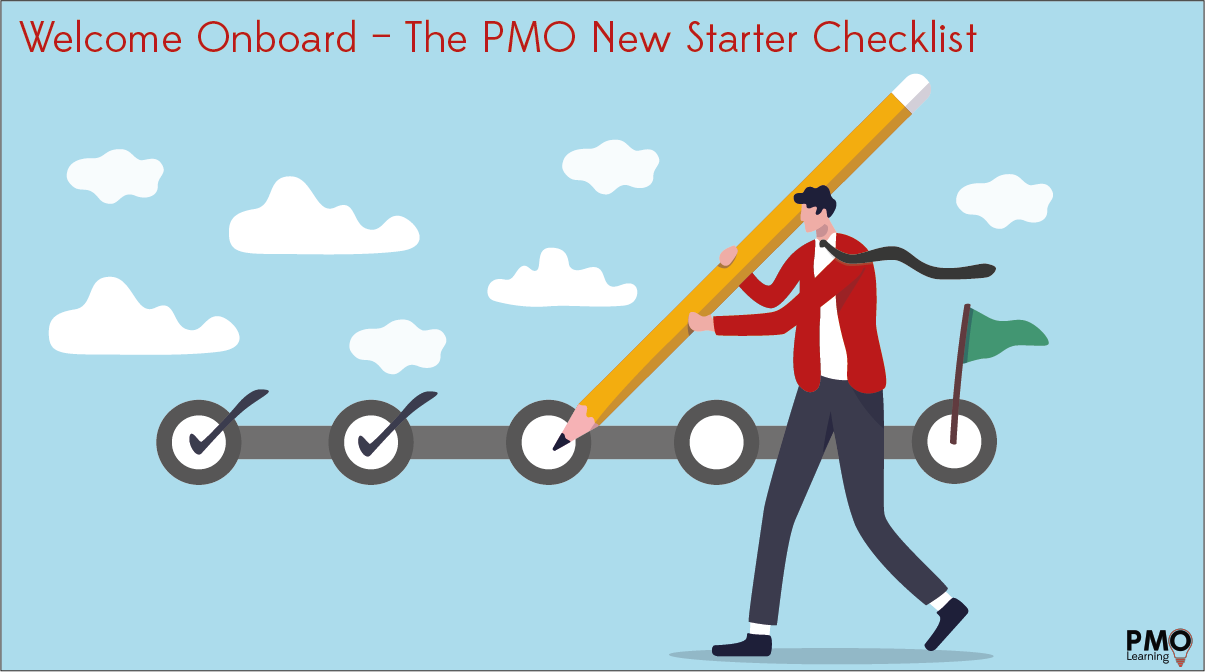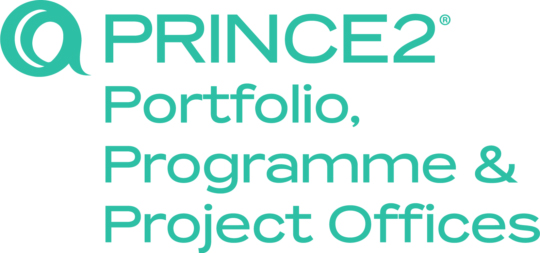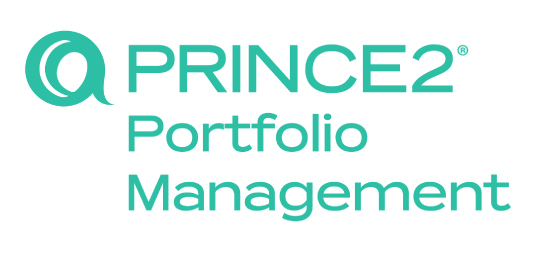One of the main tasks of a good PMO professional or PMO Administrator is being the central point of contact – or “go-to” person for everything that’s happening in and around the project. For a project manager, they become the indispensable, trustworthy, right-hand man and significant other in a tightly bonded relationship. That’s also why the project team loves having a great PMO person on their team; the bottom line is they’re there to smooth the path and make project working easier for the team too.
For anyone joining a project – whether they’re new to the company or they’ve been specially drafted in when the project is already in delivery – hitting the ground running and being productive from day one is crucial. To support this, the PMO or project support are on hand to make the onboarding process as comprehensive as possible whilst allowing the new team member to start contributing to the project. The PMO’s OnBoarding Checklist is the quickest and easiest way for a PMO professional to stay organized when welcoming new team members to the project.
The checklist is divided into five main areas; logistics; administration, project management, project and role.
Logistics
Often the first thing we think about is making sure the new starter has access to all the right equipment.![]() Being able to walk in day one and have the workspace ready with a PC hooked up to a printer is just bliss! To have logins and passwords; a working desk phone and cell phone is even better. One great thing to do with a project space is to ensure all the workspaces have the name of the person working there, even better with a photograph.
Being able to walk in day one and have the workspace ready with a PC hooked up to a printer is just bliss! To have logins and passwords; a working desk phone and cell phone is even better. One great thing to do with a project space is to ensure all the workspaces have the name of the person working there, even better with a photograph.
The new team member is going to need to the right level of access to project systems – and even some training and support in the early days. The PMO may be the right contact for this so make sure a buddy is assigned at this point for the first week.
It is also crucial that the new starter gets to meet the team as soon as possible – so organise a team lunch in the first week so everyone can get together.
Administration
There are always a lot of administrative tasks to be done on a project – completing timesheets; sorting out travel arrangements; claiming expenses; entertaining clients and so on. Although the PMO is there to support the project primarily – inevitably because of their knowledge of organisational processes they can make light work of admin tasks. The PMO will also take this opportunity to inform the new starter about what the PMO can do to support their work; the PMO Handbook is the place to go for reference in future.
Taking the new starter through these processes and equipping them with the right templates, forms and contact details upfront makes it easier for everyone to concentrate on the job in hand – the project!
A great place to start when looking to understand the P3M Administration responsibilities of a PMO Administrator is the PMO Competency Framework – The PMO Competency Framework is a guide for PMO professionals interested in assessing and developing organisation-wide, team and personal competences within a PMO environment. Find out more here.
Project Management
Everyone on the project needs to understand the Kipling six honest men, “Their names are What and![]() Why and When And How and Where and Who.” To find out what the project is all about, why it’s being delivered etc the place to go for any new starter is getting up to speed with the project documentation. Starting with the initiation documents, project schedules and technical specifications, the new starter can begin to build up a picture before joining the team.
Why and When And How and Where and Who.” To find out what the project is all about, why it’s being delivered etc the place to go for any new starter is getting up to speed with the project documentation. Starting with the initiation documents, project schedules and technical specifications, the new starter can begin to build up a picture before joining the team.
It is an opportunity to understand how this project is going to be managed and how this particular project manager likes things done. The methodologies in use help the new starter to understand how the project is run and more importantly what templates and tools they’ll need to use in their own role in the team. Take a look at the PPM elearning we offer as a trusted reseller for Aspire Europe.
Project
![]() Each project manager will have their own style of management and it is crucial that the new starter understands the culture of the project and the team. Getting this grounding will come from various sources – including setting up time for the new member to have one-on-one time with the project manager; spending time with team members and the PMO. They will also need to understand who is in the team and what roles they’re performing. They will also need to understand who their immediate work colleagues are as well as the wider project team. Organisation charts and resource plans will prove invaluable for this.
Each project manager will have their own style of management and it is crucial that the new starter understands the culture of the project and the team. Getting this grounding will come from various sources – including setting up time for the new member to have one-on-one time with the project manager; spending time with team members and the PMO. They will also need to understand who is in the team and what roles they’re performing. They will also need to understand who their immediate work colleagues are as well as the wider project team. Organisation charts and resource plans will prove invaluable for this.
Role Specific
Depending on the new starter’s role in the project, specific support may be needed to get them onboard![]() and settled into the project. Specific equipment like servers or software may be needed in a more technical role or higher levels of access to systems if they are a senior manager. There may also be the need for more focus on team orientations. Team workshops may be required to speed up their integration into the team. These areas of the checklist will be altered depending on the type of resource starting on the project.
and settled into the project. Specific equipment like servers or software may be needed in a more technical role or higher levels of access to systems if they are a senior manager. There may also be the need for more focus on team orientations. Team workshops may be required to speed up their integration into the team. These areas of the checklist will be altered depending on the type of resource starting on the project.
There could also be additional training required – and the perfect place to start is the Essentials for PMO Administrators certification. The three day course helps delegates to gain the essential knowledge and understanding to undertake the role of a PMO Administrator, as well as demonstrate a greater understanding of projects, programmes, portfolios and the PMOs, and discover the PMO services offered and how they are delivered by PMO Administrators. You can find out more about the course by clicking here!
The PMO is well-known for its love of templates and checklists and working within this field means you’ll become pretty adept at creating processes that are there to support the project and the team. It is about bringing a degree of organisation to what can sometimes feel like chaos on a busy project. It is also about repeatability, another thing that the PMO should become well-known for, more commonly known as “not reinventing the wheel!”
Enjoying Our Blog?
Sign up and receive all our articles (we’ll send you an update once a week!) plus special offers and events:
This post contains affiliate ad links.






